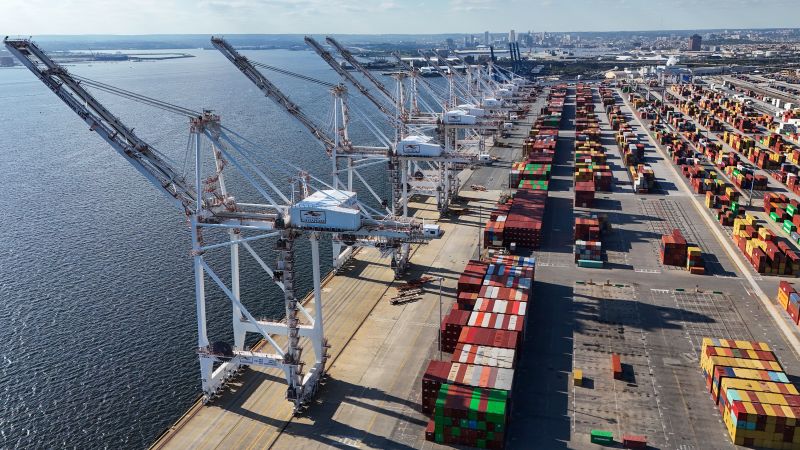The potentially crippling strike at the United States’ East and Gulf Coast ports was resolved in just three days, with limited damage done to the economy. The strike began early on a Tuesday and came to an end early on Friday after the International Longshoremen’s Association reached an agreement with the United States Maritime Alliance regarding wage increases for its 50,000 members.
The agreement included a $4-an-hour raise, immediately followed by additional $4-per-hour raises every year during the six-year contract. This would amount to a total pay raise of $24 an hour or a 62% increase for the entire contract duration. The union had initially been willing to accept a $4-an-hour deal but rejected a $3-an-hour offer from the company, leading to the strike.
Both sides were eager to get workers back on the job quickly, given the impact on the flow of goods and the workers’ loss of income during the strike. Although the strike was suspended and the previous contract extended while negotiations were ongoing, it will still take some time for the flow of goods to return to normal as ports work to recover from the shutdown.
The Port of New York and New Jersey, the largest affected port, announced that it would remain closed to trucks while containers were repositioned to facilitate movement around the port grounds. Other ports were also looking to add weekend hours to address the backlog caused by the strike.
Despite the economic losses incurred by the strike, the impact on emergency supplies and hurricane recovery efforts was minimal. The strike did not affect the flow of emergency supplies, as foreign-owned vessels carrying such shipments are not allowed to transport goods from one US port to another under existing maritime laws.
The resolution of the strike on Thursday likely marks the end of the current strike, but there is a possibility of future strikes if the union’s rank-and-file members reject the final contract language. Such rejections are not uncommon, as seen in a recent strike by the International Association of Machinists against Boeing despite a recommended tentative deal from the union leadership.















